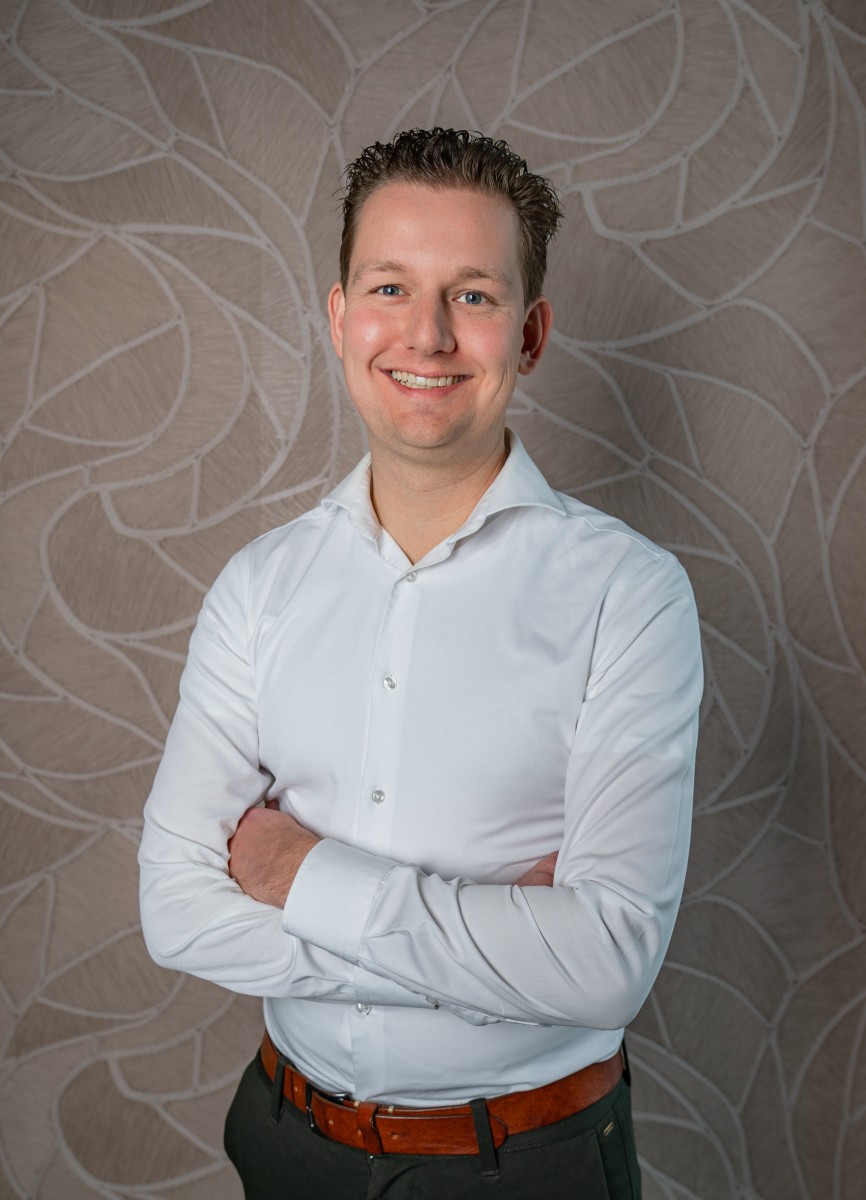Facing the digital future while learning

The world around us is constantly changing. In the construction, real estate and infrastructure sector, too, new (technological) trends and developments follow so quickly that it is almost impossible to keep up. The digital world is getting bigger and bigger, which demands a lot from organisations and the people who work there. Keeping up with development, learning and change is a must if you want your organisation to have a right to exist in the future. But how do you keep up with all these changes? How do you stay up to date? And - more importantly - how do you organise your organisation in such a way that continuing to learn becomes a goal in itself?
Usefulness and necessity
For Robin, our expert on BIM and change management, this is an issue he regularly deals with. In his role, he teaches our customers new knowledge and/or updates their existing knowledge almost every day.
But there is more. Robin's goal - and not just his, but everyone's within Based - is to show organisations the importance of continuing to learn. But, learning is often not yet a strategic goal. It is still far from being a permanent feature within an organisation. Why not? Because employees are not convinced of its usefulness and necessity. And that is 'a bit of a shame' to say the least. Because only by learning and developing will you get further. And will you stay afloat.
Digitalisation requires thinking differently
When asked why learning is so important right now, Robin answers: "This world requires you to think and act differently. Digitalisation requires you to work fast and smarter. This is necessary to be able to keep up with the projects of today and the future. We need to do a lot of things differently to build smarter. Being able to do the same with fewer people. Or be able to do more with the same number of people. Otherwise you grade yourself out of the market. If you don't do this, you're going to struggle to keep up with projects that are coming up."
Essential to keep up
He continues: "It is therefore essential to gain knowledge, share knowledge and keep up to date. By attending training courses, workshops or an education, for example. But also by reading or by watching and listening to other organisations, (con-)colleagues or pioneers in the sector. By the way, knowledge and inspiration are not only gained from building examples, but also from other industries. A friend of mine always says 'New is never around'. By this he means: don't keep walking down the same path, but try something new every now and then. Being so engaged in new discoveries keeps you on the move and on the right path. You soon continue on autopilot, but once you take a new route, you often get further and go faster. So that is not to, but mostly the best route."
Importance vs. perception
That (continued) learning is important within the construction industry is obvious. But how and where do you start as an organisation? "As consultants, we at Based are actually working all week to teach people something. But above all, we encourage them to keep developing themselves and thus keep learning. We motivate them to always keep looking for smarter solutions and/or methods. 'How can you do what you are doing now even smarter?' is the main question," says Robin.
"But you can want to impart (your) knowledge nicely, if nobody listens to you, you won't get anywhere. It starts with an organisation wanting to learn. Being open to growing into a learning culture, in which everyone sees the importance of acquiring, implementing and sharing knowledge. They have to experience for themselves what it brings them. Experience the advantages of treading new paths and sometimes having to think out-of-the-box. We really don't have to tell them how to pour concrete. It's about the mindset, about giving them a different perspective."
Insufficient basic knowledge
"Clients often come to Based when, as an organisation, they no longer know what information is current and where (and) what data and products are available. They spend a lot of time searching for the right data, products no longer function properly and the overview is far from complete. They often point to all kinds of reasons for this, but the fact is that the whole problem often starts with insufficient (basic) knowledge," replies Robin when asked what issue clients come to him with.
Building on solid foundations
"What many of the participants in our training and/or courses still sometimes struggle with is that the world has become very technical. The transition from drawings to models, for example, which is substantial, he explains. "Knowing how the world of those models works is crucial to be able to move forward. That step is just often skipped. People are thrown into the deep end, tricks are immediately pulled out. But everything starts with a solid basic knowledge. That is what we convey. And we expand it. Continuously. But we also refer back to it again and again. Without that basic knowledge, there is no foundation and you are just doing something. In our training courses and workshops, we keep hammering on that."
As to what that then looks like in practice, Robin can be brief. "We always start by explaining BIM and the basics. People often don't actually understand at all what they are looking at and what they are doing. Think of it as a library: if I'm looking for a particular book and I don't understand how the library is organised, I don't know how and where to look. This is no different here: if you don't know how models work, you will never find what you are looking for. If we focus on the basics, participants can move on to the rest."
Trial on error
And so then they learn how to perform model checks? "Yes also, but not only that. In a Solibri training course, you can learn a number of things, including clash checks. You can set this rule in different ways. I can go and explain that rule all the way through, then the participant will learn all the buttons. But what we aim for is to explain the essence of that rule and the possibilities and show where someone can get that knowledge to solve future questions. We encourage our participants to keep thinking for themselves. Look for themselves. We tell them what they can do with it and how, but then they have to get started themselves. It's all about trial and error. Keep trying, keep testing, make mistakes. Only then will you really learn. Always keep looking for new ways."
Learning by doing
How do Robin and his Based colleagues themselves actually keep up in terms of knowledge and skills? "By constantly continuing to challenge whether things can't be done smarter and better. And by continuing to learn from each other. Every Friday we have team meetings where we teach each other something new. A skill, theory, technique or whatever. That motivates you to keep going. And also by taking training courses yourself. Everyone has his best thinking. But that is his framework. That person thinks that way, wants to do it that way. With someone else's framework, or by thinking outside your own, new possibilities often arise. You then take that back to your own clients or in your own work. And above all: learning by doing. That applies not only to our clients, but also to ourselves."
Based Academy
Based wouldn't be Based if we didn't think beyond the beaten track ourselves. To give our clients - and other interested parties - the opportunity to keep learning, we set up the Based Academy. In this Academy, you will therefore find various training courses, master classes and education, related to three pillars: data strategy, innovative information management and digital asset management. All aimed at efficient and effective digital (collaboration). In short: at the Based Academy, you take the right steps towards an improved digital future, both on a strategic and a practical level.
Do you also want to keep learning? Or would you like your organisation to embrace a learning culture? Then contact Robin Kramer (robin@based.co.nl or 06 - 81 46 21 00) or visit the Based Academy for more info.


